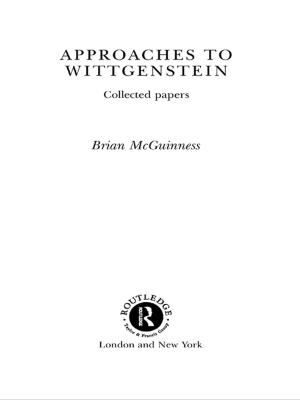The End of the Experiment
The Rise of Cultural Elites and the Decline of America's Civic Culture
Nonfiction, Social & Cultural Studies, Social Science| Author: | Stanley Rothman | ISBN: | 9781351295628 |
| Publisher: | Taylor and Francis | Publication: | September 8, 2017 |
| Imprint: | Routledge | Language: | English |
| Author: | Stanley Rothman |
| ISBN: | 9781351295628 |
| Publisher: | Taylor and Francis |
| Publication: | September 8, 2017 |
| Imprint: | Routledge |
| Language: | English |
The End of the Experiment ties together Stanley Rothman's theory of post-industrialism and his four decades of research on American politics and society. Rothman discusses the rise and fall of the New Left, the sixties' impact on America's cultural elites, and the emergence of new post-industrial humanistic values.
The first part of this book explains how cultural shifts in post-industrial society increased the influence of intellectuals and redefined America's core values. The second part examines how the shift in American social and cultural values led to a crisis of confidence in the American experiment. And in a final section, Rothman's contemporaries provide insight into his work, reflecting on his continued influence and his devotion to traditional liberalism.
Rothman presents a quantitative study of personality differences between traditional American elites and new cultural elites. Rothman argues that the experiment of America—as a new nation rooted in democracy, morality, and civic virtue—is being destroyed by a disaffected intellectual class opposed to traditional values.
The End of the Experiment ties together Stanley Rothman's theory of post-industrialism and his four decades of research on American politics and society. Rothman discusses the rise and fall of the New Left, the sixties' impact on America's cultural elites, and the emergence of new post-industrial humanistic values.
The first part of this book explains how cultural shifts in post-industrial society increased the influence of intellectuals and redefined America's core values. The second part examines how the shift in American social and cultural values led to a crisis of confidence in the American experiment. And in a final section, Rothman's contemporaries provide insight into his work, reflecting on his continued influence and his devotion to traditional liberalism.
Rothman presents a quantitative study of personality differences between traditional American elites and new cultural elites. Rothman argues that the experiment of America—as a new nation rooted in democracy, morality, and civic virtue—is being destroyed by a disaffected intellectual class opposed to traditional values.















